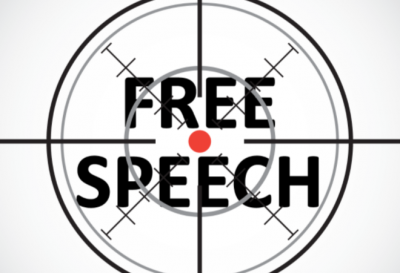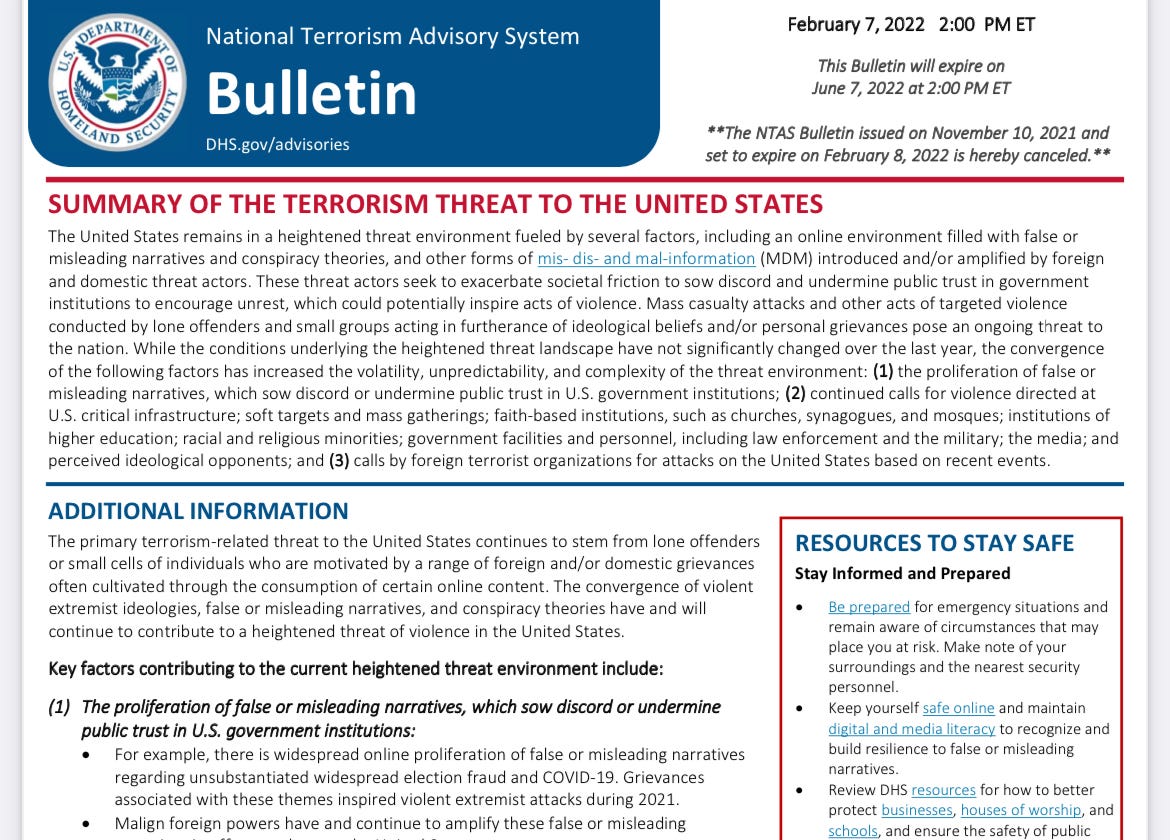U.S. Homeland Security Report: “False or Misleading Narratives and Conspiracy Theories” to be Categorized as “Terrorism”?
If this isn’t a government effort to discourage lawful speech, I don’t know what is.

All Global Research articles can be read in 51 languages by activating the “Translate Website” drop down menu on the top banner of our home page (Desktop version).
To receive Global Research’s Daily Newsletter (selected articles), click here.
Visit and follow us on Instagram at @globalresearch_crg and Twitter at @crglobalization.
***
I am starting to think I need to file a First Amendment lawsuit over that insane bulletin from the Department of Homeland Security on Feb. 7.
In case you’ve forgotten, that report – a public declaration of the federal government’s official view of terrorism – called the top terrorist threat to the United States:
false or misleading narratives, which sow discord or undermine public trust in U.S. government institutions.
Their words, not mine.
Trying to “undermine public trust in U.S. government institutions” is now a terrorist act?
Then I’m a terrorist.
Especially since the bulletin specifically mentions COVID-19: there is widespread online proliferation of false or misleading narratives regarding unsubstantiated widespread election fraud and COVID-19.
There’s that word “misleading” again. As this White House has made clear, “misleading” facts are those that lead people to opinions of conclusions it doesn’t like.

No, no one has knocked on my door or threatened to arrest me.
But that does mean the government is not targeting me – along with other prominent Covid and vaccine skeptics. Per the bulletin, the Department of Homeland Security in 2021 expanded its evaluation of online activity as part of its efforts to assess and prevent acts of violence.
The government has other tools against people it classifies as terrorists too, including plenty of secret ones.
And remember, to be a terrorist under these terms, your speech simply has to “potentially inspire acts of violence.”
Potentially.
If this isn’t a government effort to discourage lawful speech, I don’t know what is. The question is whether it is so broad and dangerous that I can prove it will have a chilling and unconstitutional effect on me (and other people) even if I do not know I am being targeted. It feels like a form of prior restraint, all the worse for being so broad.
Will courts agree? There may be only one way to find out.
And quickly, if I do it. The Rocket Docket in the Eastern District of Virginia feels like the place.
*
Note to readers: Please click the share buttons above or below. Follow us on Instagram, @globalresearch_crg and Twitter at @crglobalization. Forward this article to your email lists. Crosspost on your blog site, internet forums, etc.

